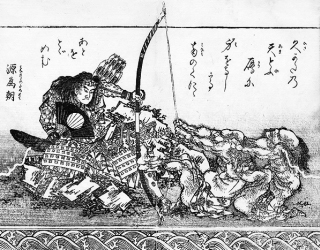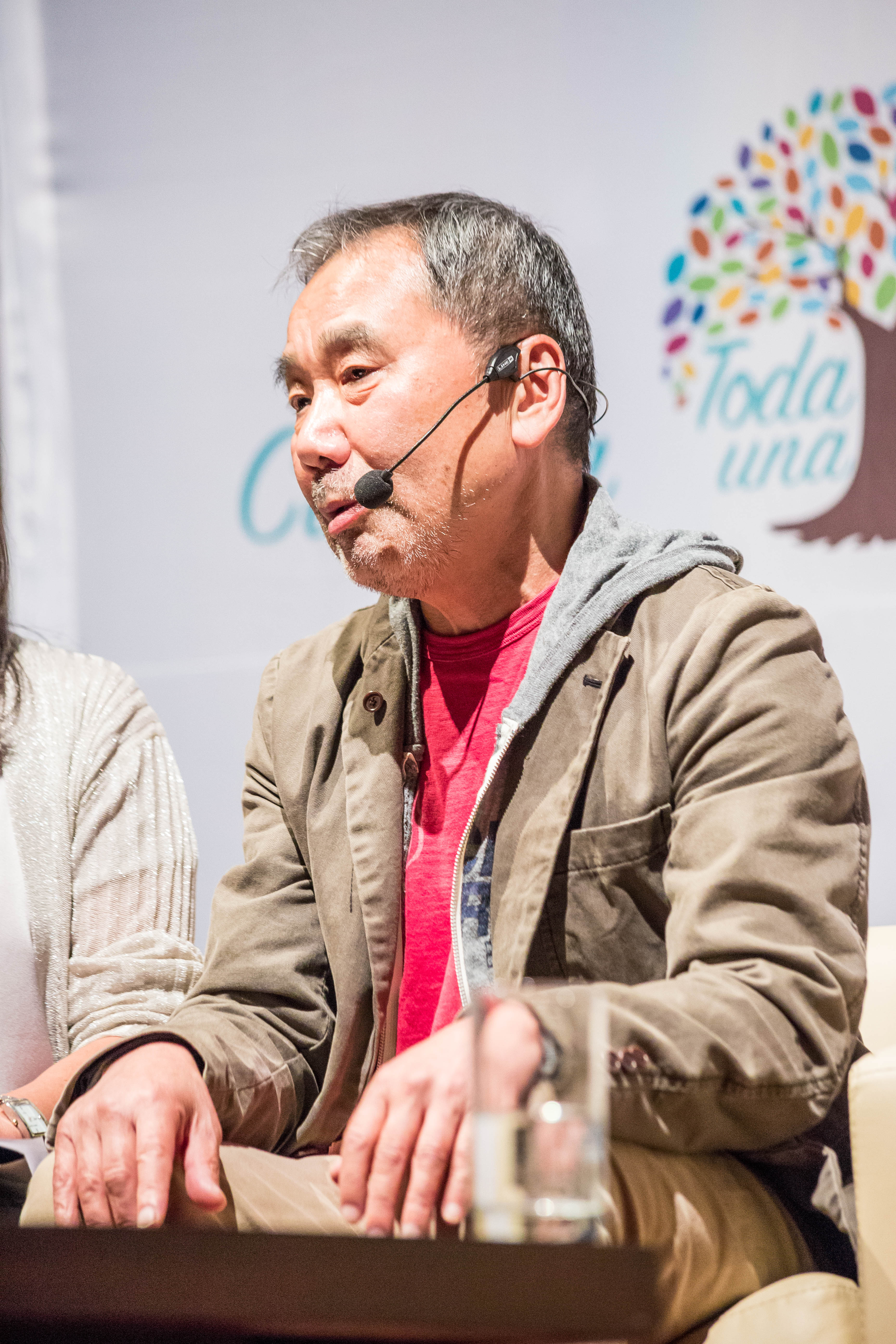|
Ueda Akinari
was a Japanese author, scholar and '' waka'' poet, and a prominent literary figure in 18th-century Japan. He was an early writer in the '' yomihon'' genre and his two masterpieces, '' Ugetsu Monogatari'' ("Tales of Rain and the Moon") and '' Harusame Monogatari'' ("Tales of Spring Rain"), are central to the canon of Japanese literature. Biography Born to an Osaka prostitute and an unknown father, Ueda was adopted in his fourth year by a wealthy merchant who reared him in comfort and provided him with a good education. As a child he became gravely ill with smallpox, and although he survived, he was left with deformed fingers on both hands. During his illness, his parents prayed to the god of the Kashima Inari Shrine, and Ueda felt that this deity had intervened and saved his life. Throughout his life he remained a strong believer in the supernatural, and this belief seems to inform important elements of his literature and scholarship such as his most famous work, a collection o ... [...More Info...] [...Related Items...] OR: [Wikipedia] [Google] [Baidu] |
Philology
Philology () is the study of language in Oral tradition, oral and writing, written historical sources. It is the intersection of textual criticism, literary criticism, history, and linguistics with strong ties to etymology. Philology is also defined as the study of literary texts and oral and written records, the establishment of their authentication, authenticity and their original form, and the determination of their meaning. A person who pursues this kind of study is known as a philologist. In older usage, especially British, philology is more general, covering comparative linguistics, comparative and historical linguistics. Classical philology studies classical languages. Classical philology principally originated from the Library of Pergamum and the Library of Alexandria around the fourth century BC, continued by Greeks and Romans throughout the Roman Empire, Roman and Byzantine Empire. It was eventually resumed by European scholars of the Renaissance humanism, Renaissance, ... [...More Info...] [...Related Items...] OR: [Wikipedia] [Google] [Baidu] |
Ugetsu
''Ugetsu'' (雨月物語, ''Ugetsu Monogatari'', lit. "Rain-moon tales") is a 1953 Japanese period fantasy film directed by Kenji Mizoguchi starring Masayuki Mori and Machiko Kyō. It is based on the stories "The House in the Thicket" and "The Lust of the White Serpent" from Ueda Akinari's 1776 book '' Ugetsu Monogatari'', combining elements of the ''jidaigeki'' (period drama) genre with a ghost story. Drawing from Ueda's tales, the film is set in Japan's civil war–torn Azuchi–Momoyama period (1568–1600). In a small rural community, a potter leaves his wife and young son behind to make money selling pottery and ends up being seduced by a spirit that makes him forget all about his family. A subplot, inspired by Guy de Maupassant's 1883 short story "How He Got the Legion of Honor" ("Décoré !"), involves his brother-in-law, who dreams of becoming a samurai and chases this goal at the unintended expense of his wife. The film won the Silver Lion Award at the 1953 Venice ... [...More Info...] [...Related Items...] OR: [Wikipedia] [Google] [Baidu] |
Edo Period
The , also known as the , is the period between 1600 or 1603 and 1868 in the history of Japan, when the country was under the rule of the Tokugawa shogunate and some 300 regional ''daimyo'', or feudal lords. Emerging from the chaos of the Sengoku period, the Edo period was characterized by prolonged peace and stability, urbanization and economic growth, strict social order, Isolationism, isolationist foreign policies, and popular enjoyment of Japanese art, arts and Culture of Japan, culture. In 1600, Tokugawa Ieyasu prevailed at the Battle of Sekigahara and established hegemony over most of Japan, and in 1603 was given the title ''shogun'' by Emperor Go-Yōzei. Ieyasu resigned two years later in favor of his son Tokugawa Hidetada, Hidetada, but maintained power, and defeated the primary rival to his authority, Toyotomi Hideyori, at the Siege of Osaka in 1615 before his death the next year. Peace generally prevailed from this point on, making samurai largely redundant. Tokugawa sh ... [...More Info...] [...Related Items...] OR: [Wikipedia] [Google] [Baidu] |
Kyokutei Bakin
, born , was a Japanese novelist of the Edo period, who wrote under the pen name . Later in life he took the pen name . Modern scholarship generally refers to him as , or just as n. He is regarded as one of, if not the, leading author of early 19th century Japanese literature. He was the third surviving son of a family of low rank. After numerous deaths in his family, he relinquished his status, married a merchant's widow, and became an townsperson. He was able to support his family with his prolific writing of , primarily didactic historical romances, though he always wanted to restore his family to the social class. Some of his best known works are (The Chronicles of the Eight Dog Heroes of the Satomi Clan of Nansō) consisting of 106 books and ' (Strange Tales of the Crescent Moon). published more than 200 works in his life, including literary critiques, diaries, and historical novels. Life and career Family and early life Born in (present-day Tokyo) on 4 July 1 ... [...More Info...] [...Related Items...] OR: [Wikipedia] [Google] [Baidu] |
Bungo Stray Dogs
, also abbreviated as ''B-S-D'', is a Japanese manga series written by Kafka Asagiri and illustrated by Sango Harukawa, which has been serialized in Kadokawa Shoten's Seinen manga, manga magazine ''Young Ace'' since 2012. Each character is named after influential authors throughout history, and their powers are based on said author's books. The series follows the members of the Armed Detective Agency as they try to protect Yokohama from organizations such as the Port Mafia. The story mainly focuses on the weretiger Atsushi Nakajima (Bungo Stray Dogs), Atsushi Nakajima, who joins others gifted with supernatural powers to accomplish different tasks including solving mysteries and carrying out missions assigned by the agency. As of 2024, ten light novels have been published. An anime television series adaptation produced by Bones (studio), Bones aired in 2016 in two parts; the first season aired between April and June 2016, and the second season aired between October ... [...More Info...] [...Related Items...] OR: [Wikipedia] [Google] [Baidu] |
AK Srikanth
AK or A.K. may refer to: Arts and entertainment * ''A.K.'' (film), a 1985 film directed by Chris Marker * AK (radio program), a weekly program produced by Alaska Public Radio Network from 2003 to 2008, later a segment on ''Alaska News Nightly'' * AK (rapper), also known as AK the Razorman, American rapper from Atlanta, Georgia, member of hip hop group P$C * AK-47 (rapper), American rapper from Chicago, Illinois, member of hip hop group Do or Die * AK the Savior, American rapper from Brooklyn, New York, member of The Underachievers * ''Arknights'', the Chinese mobile game developed by Hypergryph * Ajith Kumar, Indian actor, commonly referred to as AK * Ananda Krishnan, Malaysian broadcast and telecommunications businessman * Anil Kapoor, Indian actor, often referred to simply as AK ** ''AK vs AK'', 2020 Indian film by Vikramaditya Motwane about Kapoor *Ayushmann Khurrana, Indian actor and singer Businesses and organizations * AK Press, a collectively owned and operated independent ... [...More Info...] [...Related Items...] OR: [Wikipedia] [Google] [Baidu] |
Killing Commendatore
is a 2017 novel written by Japanese writer Haruki Murakami. It was first published in two volumes– and , respectively–by Shinchosha in Japan on 24 February 2017. An English translation by Philip Gabriel and Ted Goossen was released as a single, 704-page volume on 9 October 2018 by Alfred A. Knopf in the US and by Harvill Secker in the UK. The publisher of the book stated that 1.3 million copies were planned for the first-edition Japanese prints. Plot The protagonist is an unnamed portrait painter whose wife leaves him at the start of the book. Devastated, he quits portrait painting and goes on a long road trip. In the middle of his road trip he meets a nervous woman in a diner who seems to be running away from someone. The protagonist suspects that she is running away from a man who sits nearby while they eat. The protagonist nicknames this man as the man with the white Subaru Forester. The woman and the protagonist end up going to a love hotel and having violent sex. The ... [...More Info...] [...Related Items...] OR: [Wikipedia] [Google] [Baidu] |
Haruki Murakami
is a Japanese writer. His novels, essays, and short stories have been best-sellers in Japan and internationally, with his work translated into 50 languages and having sold millions of copies outside Japan. He has received numerous awards for his work, including the Gunzo Prize for New Writers, the World Fantasy Award, the Tanizaki Prize, Yomiuri Prize for Literature, the Frank O'Connor International Short Story Award, the Noma Literary Prize, the Franz Kafka Prize, the Kiriyama Prize for Fiction, the Goodreads Choice Awards for Best Fiction, the Jerusalem Prize, and the Princess of Asturias Awards. Growing up in Ashiya, near Kobe before moving to Tokyo to attend Waseda University, he published his first novel '' Hear the Wind Sing'' (1979) after working as the owner of a small jazz bar for seven years. His notable works include the novels '' Norwegian Wood'' (1987), '' The Wind-Up Bird Chronicle'' (1994–95), '' Kafka on the Shore'' (2002) and ''1Q84'' (2009–10); t ... [...More Info...] [...Related Items...] OR: [Wikipedia] [Google] [Baidu] |
Monk
A monk (; from , ''monachos'', "single, solitary" via Latin ) is a man who is a member of a religious order and lives in a monastery. A monk usually lives his life in prayer and contemplation. The concept is ancient and can be seen in many religions and in philosophy across numerous cultures. The Greek word for "monk" may be applied to men or women. In English, however, "monk" is applied mainly to men, while ''nun'' is typically used for female monastics. Although the term ''monachos'' is of Christianity, Christian origin, in the English language ''monk'' tends to be used loosely also for both male and female ascetics from other religious or philosophical backgrounds. However, being generic, it is not interchangeable with terms that denote particular kinds of monk, such as cenobite, hermit, anchorite, or Hesychasm, hesychast. Traditions of Christian monasticism exist in major Christian denominations, with religious orders being present in Catholicism, Lutheranism, Oriental Ort ... [...More Info...] [...Related Items...] OR: [Wikipedia] [Google] [Baidu] |
Intellect
Intellect is a faculty of the human mind that enables reasoning, abstraction, conceptualization, and judgment. It enables the discernment of truth and falsehood, as well as higher-order thinking beyond immediate perception. Intellect is distinct from ''intelligence'', which refers to the general ability to learn, adapt, and solve problems, whereas ''intellect'' concerns the application of reason to abstract or philosophical thought. In philosophy, intellect () has often been contrasted with , a term referring to the faculty of direct intuitive knowledge. While intellect engages in discursive reasoning, breaking down concepts into logical sequences, ''nous'' is considered a higher cognitive faculty that allows for direct perception of truth, especially in Platonism and Neoplatonism. Aristotle distinguished between the active intellect (), which abstracts universal concepts, and the passive intellect, which receives sensory input. During late antiquity and the Middle Ages, ... [...More Info...] [...Related Items...] OR: [Wikipedia] [Google] [Baidu] |




